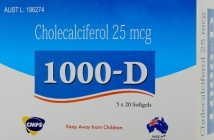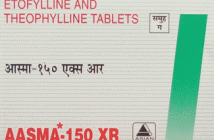Home / Categories / AROCOX-90

AROCOX-90
(10TX10S)
ETORICOXIB-90MG
NSAID-SELECTIVE COX-2 IHIBITOR
ASIAN PHARMACEUTICALS-PHARMA-DIVISION
Product Details
ETORICOXIB
Class: Analgesic
Cyclooxygenase-2 Inhibitor
Mechanism of action
Etoricoxib is an NSAID reported to be a selective inhibitor of cyclo-oxygenase-2 (COX-2). Etoricoxib selectively inhibits isoform 2 of cyclo-oxigenase enzyme (COX-2). This reduces prostaglandins (PGs) generation from arachidonic acid.
Indication
For the symptomatic relief of rheumatoid arthritis, osteoarthritis, ankylosing spondylitis, chronic low back pain, acute pain and gout.
In osteoarthritis, etoricoxib is given orally in a usual dose of 30mg once daily, increased to 60mg once daily if necessary. The recommended dose in rheumatoid arthritis is 90mg once daily; higher doses of 120mg once daily are used in gouty arthritis although such doses should only be used for the acute symptomatic peroid and for a maximum of 8 days.
Pharmacodynamics
Etoricoxib is a COX-2 selective inhibitor (approximately 106 times more selective for COX-2 inhibition over COX-1). Currently it is approved in more than 60 countries worldwide but not in the US, where the Food and Drug Administration (FDA) require additional safety and efficacy data for etoricoxib before it will issue approval.
Pharmacokinetics
Absorption: Well absorbed from Gastrointestinal tract after oral doses,
Bioavailability is 100% following oral administration.
Distribution: Plasma protein binding is about 92%.
Metabolism: Major route is via cytochrome P450 isoenzymes, it is extensively
metabolised with less than 2% of a dose recovered in the urine
as the parent drug.
Excetion: Mainly via the urine (70%) with only 20% of a dose appearing
the faeces.
Adverse Effects:
-
Hypersensitive reactions including anaphylaxis and angioedema have occurred in the patients receiving etoricoxib; it should be stopped at the first signs of hypersensitivity.
-
Gastrointestinal perforation, ulceration, and bleeds.
Contraindication:
-
Etoricoxib should not be used in patients with ischemic heart disease, pheripheral arterial disease, or cerebrovascular disease.
-
Etoricoxib should be avoided in patients with severe hepatic impairment. Therapy should be stoped if presistently abnormal liver enzyme values are seen.
-
Etoricoxib should should be used with caution in patients with significant risk factors for cardiovascular disease such as hypertension, hyperlipidaemia, and diabetes mellitus.
-
Etoricoxib, particularly at high doses, may be associated with more frequent and severe hypertension compared with other NASIDs and selective COX-2 inhibitors; BP monitoring during treatment is recommended.
-
Etoricoxib is also contra-indicated in patients with inflammatory bowel disease, moderate to severe heart failure (NYHA class II to IV), and renal impairement associated with a creatinine clearance of less than 30ml/minute.
-
Caution is recommended when using etoricoxib in dehydrated patients; it may be advisable to rehydrate patients before giving etoricoxib.
SOURCE:DRUGBANK
Mardindale Pharmacoepia.





